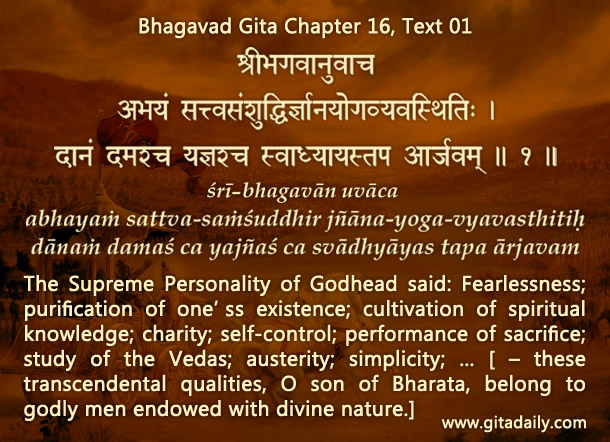When a principled person stands up to a powerful person, especially when that powerful person is autocratic or atrocious, then that act of standing up is often seen as courageous – and rightly so.
Still, it’s important to not reduce courage only to standing up to outside forces. Such an externalized conception of courage can make people glamorize rebellion against any authority for any cause – they may end up embracing rebellion for rebellion’s sake.
So we need to complement the external conception of courage with its internal essential counterpart. Inner courage centers on standing up to the inner forces that impede us in living according to principles. Gita wisdom explains the best principles to live for and the inner forces that impede us. We are at our core souls who can find lasting fulfillment in loving the supreme person Krishna and in loving all living beings in relationship with him. Such spiritual love is the noblest principle that we can live for. In living for such selfless love, we stay true to ourselves.
But we are often obstructed and frustrated in our attempts to live true to ourselves by the formidable inner force of the mind. The mind can act as an arbitrary autocrat who makes us do atrocious things. To stand up to this inner tyrant, we need courage. The Bhagavad-gita (16.01) points to this inner dimension of courage when in its list of the qualities that characterize the godly it follows courage immediately with purification.
In fact, as compared to the courage needed for standing up to external dictators, the courage needed to stand up to the mind is much greater. And the rewards of such courage are also far greater: the manifestation of our potential for pure love and everlasting happiness.
Explanation of article:


Leave A Comment